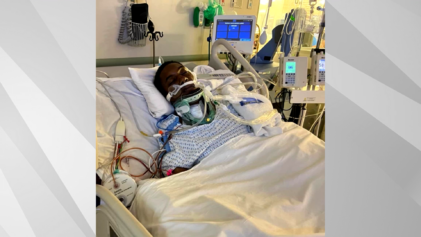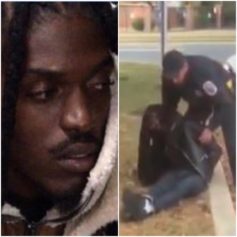
Baltimore Mayor Catherine E. Pugh (D) listens as Police Commissioner Darryl DeSousa speaks during a news conference in January. (Kim Hairston/AP)
Criminal justice remains a hot topic in Maryland, where lawmakers agree that comprehensive reforms are needed, but they are divided on what shape those reforms should take. In the recently concluded Maryland legislative session, the Democratic-controlled General Assembly batted a series of crime bills back and forth from the House of Delegates to the Senate before passing compromise measures for Republican Gov. Larry Hogan’s signature. This result will mean longer sentences for some offenders and some relief for ex-offenders.
Touted as a means to curb violent crime — particularly in Baltimore, where the original bill was sponsored state Sen. Robert Zirkin (D-Baltimore County) and had the support of Democratic Mayor Catherine Pugh — the Senate bill sparked a debate in part over prison sentence lengths. Progressives and activists decried a provision that would have raised the maximum sentence from 20 years to 40 years for two-time offenders who use a gun in connection with drug trafficking.
While some aspects of the original bill were scrapped following outcry, most notably from the Black and Latino Caucuses, those in favor weren’t willing to take minimum sentencing off the table. As passed, Maryland’s new law is raising minimum sentences for repeat violent offenders who use firearms to as much as 10 years without the possibility of parole. Despite failing the Senate, the pieces cobbled together by the House have now prompted two separate measures, one of which could go into effect as early as June 1st if passed.
Gov. Hogan has long supported such legislation, and recently described the House vote as, “The bills passed were a result of a bipartisan effort and were supported by many lawmakers representing Baltimore City. We strongly believe that these initiatives will have a transformative impact on reducing violent crime.”
Others have voiced their misgivings, including Darryl Barnes, State Delegate and Chairman of the Legislative Black Caucus. As reported by the Washington Post, following the House vote he admitted, “It still gives some people heartburn. I told people to vote their conscience.”
Even with provisions added to clamp down on gang violence, critics caution that focusing solely on mandatory sentencing may disproportionately affect minority residents, who typically bear the brunt of such laws.
It’s a fear that Toni Holness, a policy director at the Maryland American Civil Liberties Union describes as “The evidence that we have shows that long sentences actually increase recidivism. They have a negative impact on public safety.”
Such criticism prompted lawmakers to settle on a compromise of sorts when the Maryland General Assembly met for its final day of the legislative session on Monday, when the final bills included a provision allowing criminal records to be expunged after 15 years for crimes involving burglary, drug possession with the intent to distribute, and theft.
The legislation would be implemented in two parts, with Senate Bill 1137 going into effect on June 1 — giving officials the ability to use wiretaps in crimes that involve firearms. It would also strengthen laws against the powerful opioid fentanyl, and would raise minimum sentences for witness intimidation to 10 years. The second portion, Senate Bill 101, which addresses new mandatory 10-year sentences for a number of second convictions, would take effect on October 1.
Still, some are not convinced, including New York public defender Scott Hechniger, who recently tweeted his frustration: “A blatant failure to study the history of how mandatory minimums have driven mass incarceration with no measurable impact on crime reduction. They’re clearly only listening to prosecutors — the only group who benefits from them — instead of the communities torn to shreds as a result.”
Baltimore is well familiar with the ways in which the justice system can adversely affect minority communities, with a 2016 investigation of the Baltimore City Police Department detailing a need for police reform. According to the report, “Recent events highlight the critical importance of mutual trust and cooperation between law enforcement officers and the people they serve. A commitment to constitutional policing builds trust that enhances crime fighting efforts and officer safety.
“Conversely, frayed community relationships inhibit effective policing by denying officers important and placing them more frequently in dangerous, adversarial encounters. We found these principals in stark relief in Baltimore, where law enforcement officers confront a long history of social and economic challenges that impact much of the city, including the perception that there are ‘Two Baltimores:’ one wealthy and largely white, the second impoverished and predominantly black.”
In a city still reeling from the fallout of the Freddie Gray case, expanding the powers of local authorities and implementing harsher sentences has become a touchy issue for many, and as new criminal reform measures are introduced, residents and lawmakers alike will ultimately have to wait to gauge the results.


